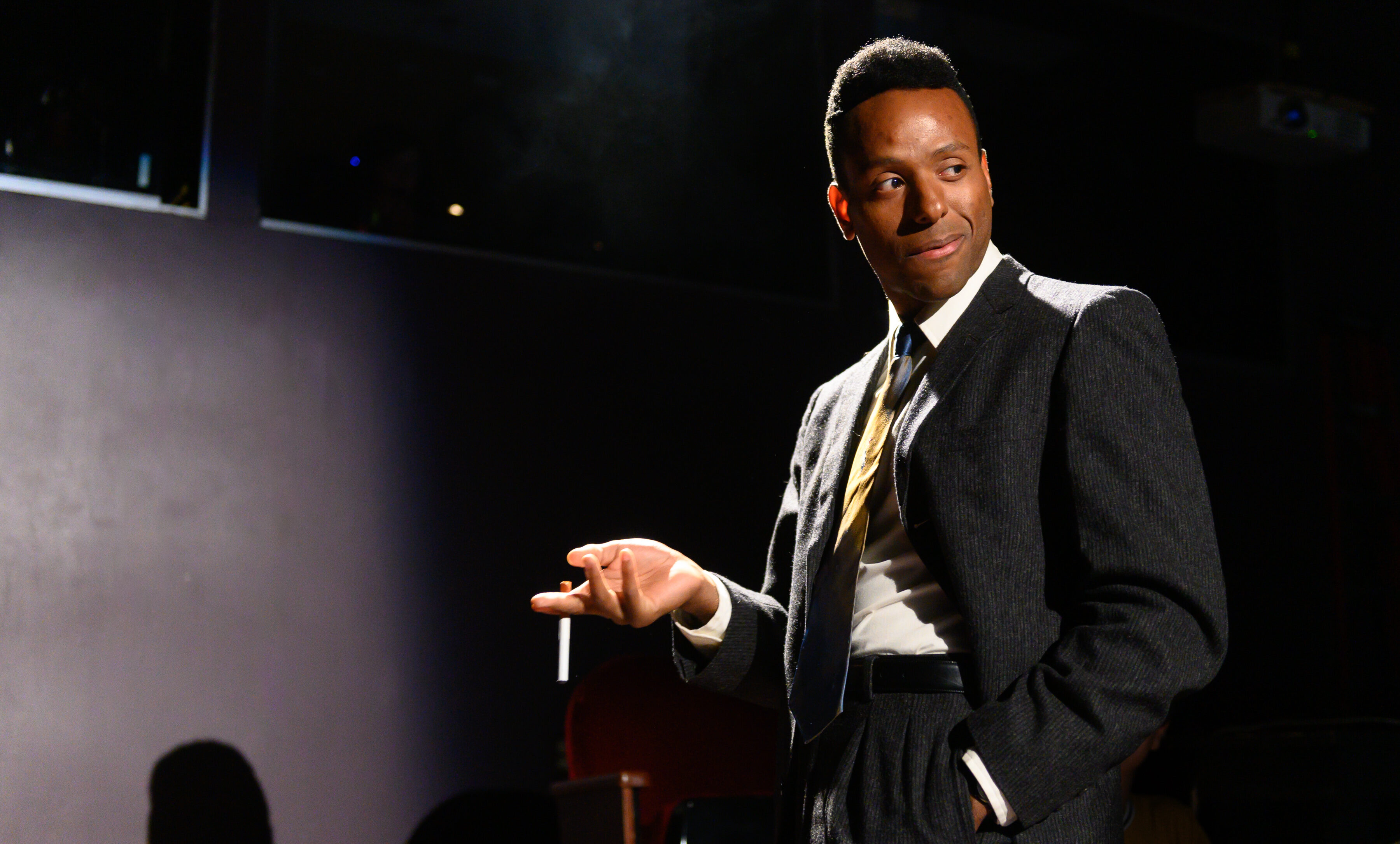Pictured above: Jon-Michael Reese from Pillsbury House Theatres’ ‘Jimmy and Lorraine: a Musing.’ Photo by Rich Ryan.
Recognizing that art has more to offer than just a means in which to be entertained, Pillsbury House and Theatre continues the early settlement house tradition of using art as a transformative tool for social justice, a way for people to connect and promote cultural understanding. Speaking of their work within the overall mission of Pillsbury United Communities, Faye Price, Co-Artistic Producing Director of the Pillsbury House Theatre and Co-Director of Pillsbury House, says, “I always think that art, and specifically the art that we do, is another path to health and wellness.”
Their current production, Jimmy and Lorraine: a Musing by Talvin Wilks, explores the lives of James Baldwin and Lorraine Hansberry, prominent artists and civil rights activists of the 50’s-60’s whose words regarding politics, race, and relationships remain timeless. Price, speaking about how the lives and work of these two individuals are still so relevant in light of the inequities our country continues to face, says, “Our hope is that people can watch these characters—and relive in some cases—or learn who they are and what they had to offer us. And their words of hope, their words of anger. Why does this all feel so familiar decades later? Why are we still going through all of this?” And, at the end of it all, when the lights go down and the play concludes, for the playgoers she hopes for some kind of transformation, that “something has been touched to make them question an event, a feeling, a belief, a thought.”
In addition to theatre being a powerful tool to shift mindsets, it also provides a unique way for strangers to connect. Hull House, the first settlement house established in the U.S. by Jane Addams, used theatre as a way for new European immigrants to mingle. With Italians showcasing the work of their best Italian playwrights, the Polish putting on plays produced by their own best artists, and so on and so forth, different groups used this artistic expression to learn more about one another. “That’s what we’re doing,” Price says. “We believe that culture is a way to speak to everyone. Our demographics have changed, but we’re still doing the work and really kind of walking the talk in terms of using the arts to intersect with people. Inside of our theatre, we see women from shelters sitting beside well-to-do lawyers from the suburbs and Somali teenagers sitting next to Caucasian senior citizens. You enter into this space as strangers and you come out of it with a shared experience which I think is a lovely thing. And hopefully you continue the conversation.”
Also staying rooted in settlement house traditions of valuing accessibility of the arts, Pillsbury House Theatre uses a pay-what-you-can ticketing system so that everyone can experience their productions. “We want people to see theatre that are not able to see theatre, that feel like they’re priced out of it,” Price says. Not only that, but this unique hub for creativity and community also threads art throughout their human service programming of Pillsbury House Neighborhood Center. Resident artists teach classes at their daycare as well as are involved with their on-site day training and habilitation program for adults with disabilities. Older adults are engaged in a ‘Visual Memoir’ class. Their Breaking Ice program uses the arts for diversity, equity, and inclusion trainings. Local artists rotate through a structure in their lobby every two months to “remind everybody that this is a place of the arts, how the arts bring people together, and how the arts can encourage healthy and vibrant communities,” Price says.
And hopefully, this was a small reminder of just that—the power art carries to foster connectedness, creativity, and change. If you haven’t had the chance already, we encourage you to see this in action over at Pillsbury House and Theatre. (Jimmy and Lorraine: a Musing is on-stage until October 20th!)



